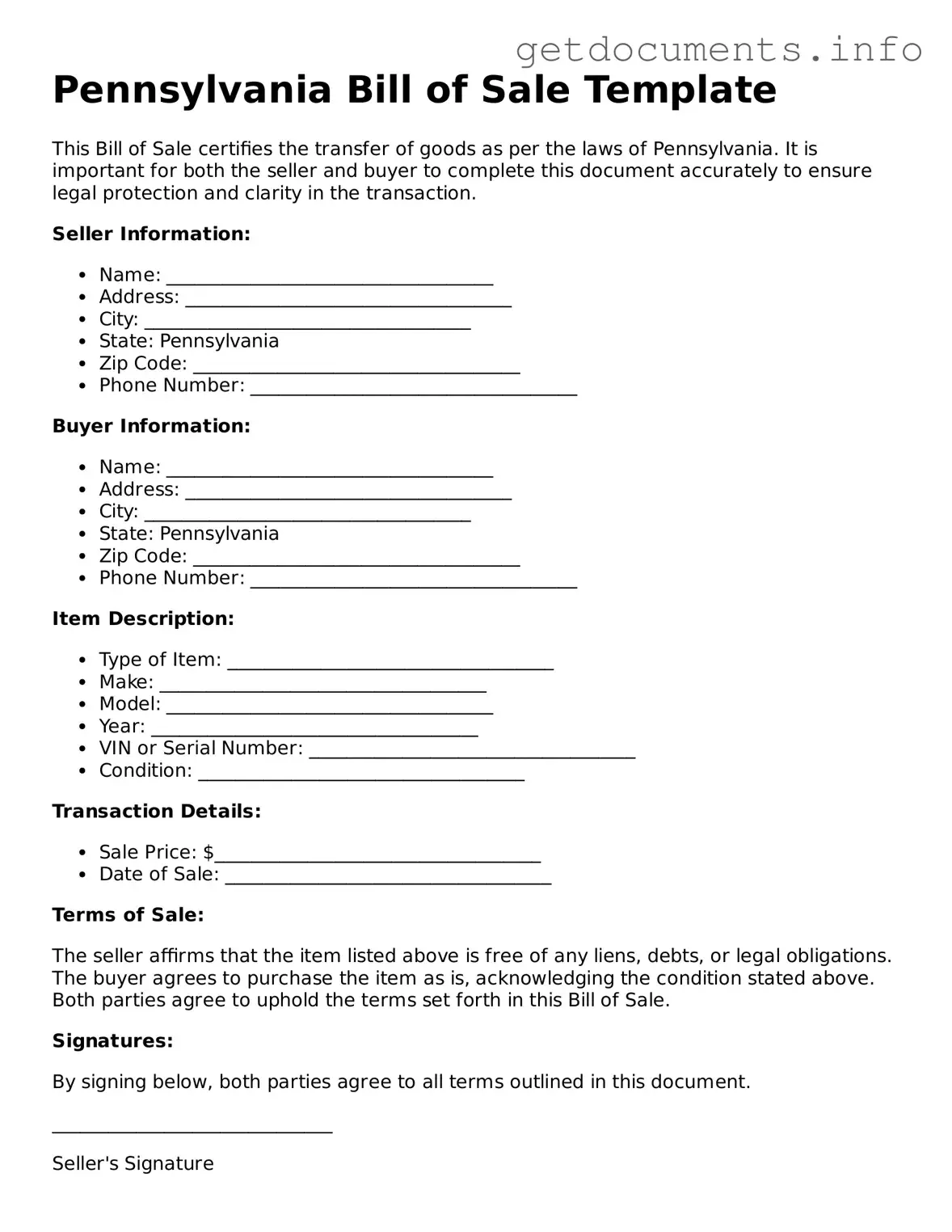Free Bill of Sale Template for Pennsylvania
The Pennsylvania Bill of Sale form serves as a legal document that records the transfer of ownership of personal property from one party to another. This form is essential for ensuring that both the buyer and seller have a clear understanding of the transaction details, including the item description and purchase price. To facilitate a smooth transfer, it is important to fill out this form accurately.
Ready to complete your transaction? Fill out the form by clicking the button below.
Access Bill of Sale Editor

Free Bill of Sale Template for Pennsylvania
Access Bill of Sale Editor
Got places to be? Complete the form fast
Fill out Bill of Sale online and avoid printing or scanning.
Access Bill of Sale Editor
or
⇩ PDF File
